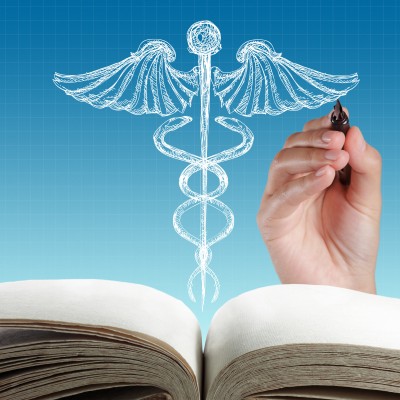I may be a genealogist, but I have a slightly skewed way of viewing genealogy. In the traditional sense of ancestor search, I want to know about my ancestors – who they were and what they did. On the other hand, there is the biological component – my ancestors are a part of me. I resemble one of my grandmothers more than the other – right down to my dimples. As I look at my ancestors, they can give me other insights into how I got to be who I am (other than just a genealogist). Were they tall or short? Did they have a slight build, or were they from a more solid stock? How long did they live? How did they die: from accident or a disease that we have conquered; from a heart attack or cancer or senility; or did they seem to fade away?
When I see a new physician, knowing he/she will want a medical family history, the genealogy researcher in me comes bubbling to the surface. Being a good genealogist, I have the death certificates for my parents, grandparents, and all but two of my great grandparents. I even have a couple of death certificates for g-g-grandparents, plus obituaries from the local newspapers.
All in all, it is way more information than the physician is looking for; but as a family history researcher, I think it is important to trace family history with an eye for genetic genealogy – not only for me, but for my descendants, as well. The most important medical data to have includes:
- Name
- Relationship
- Birth date
- Death date
- Cause of death
Also important: keep a family medical history to one sheet of paper.
I have a neatly organized copy that is included in my personal medical file. I’m sure there are other formats that can be used, but I have chosen one similar to a four-column pedigree file with my siblings and me listed on the center-left portion of the page. Starting with my generation, I include our birth dates and major health issues. In the next column I have my parents, then grandparents, and finally, great grandparents. At the bottom of the page I list the individuals and the cause of death as stated on the death certificate, as well as their age at the time of death.
The doctor is usually impressed with my genetic genealogy. It seems that many people can only name their parents, possibly a grandparent or two, and only maybe what they died of. With my medical family history I get an, “Okay, this is good,” although I only go back four generations. The sheet is slipped into my medical file. The “Okay, this is good” can usually be translated as: “Medicine has changed a lot in the past one hundred or so years, and as long as we have a general idea of family health issues, that’s fine and dandy.”
Keep in mind that life expectancy has increased over the years. In the 1800s, 60 or 65 was considered a long life, while now individuals routinely live to be 80 or 85.
Of my 14 parents, grandparents, and great grandparents:
- Eight died of heart related issues
- Two died of cancer
- One died of pneumonia
- One died of tuberculosis
- For one, diabetes was a contributing factor
- Two, I suspect, died of heart-related issues; unfortunately, I don’t have death certificates to confirm it
This tells me that I had better take good care of my heart. I have three siblings; of the four of us, three have similar cholesterol issues. A short timeline for cholesterol study:
- 1769 – Cholesterol was identified in solid form in gallstones
- 1815 – A chemist named the compound “cholestrine”
- 1987 – A report of the National Cholesterol Education Program suggested what total blood cholesterol levels should be. I’m sure this has been refined in the ensuing years.
In addition to taking care of my heart, I need to watch what I eat and exercise.
The ages of my ancestors at the time they died:
- 41-50: 1
- 51-60: 1
- 61-70: 7
- 71-80: 3
- 81 and over: 2
But I do have the potential for living a long and active life.
As a genealogist, part of the reason why I trace family history is to discover genetic genealogy. From my genealogical research, I have learned not to take my health for granted. By learning about my family’s genetic genealogy, I know what to look out for, although I recognize that other unexpected health issues may appear. By creating a medical family history, at least I have given my healthcare provider an idea of what medical conditions I may have, so that we can then take a more proactive approach to my healthcare.
Here at RecordClick, there are professional genealogists who can help you create a medical family history to give you an idea of your genetic genealogy. RecordClick also offers DNA testing kits, if you choose to take a deeper dive into the medical aspects of your ancestor search. The professional genealogical researchers at RecordClick can assist in obtaining death certificates, mortuary records, or other records that may help in creating a genetic genealogy.







